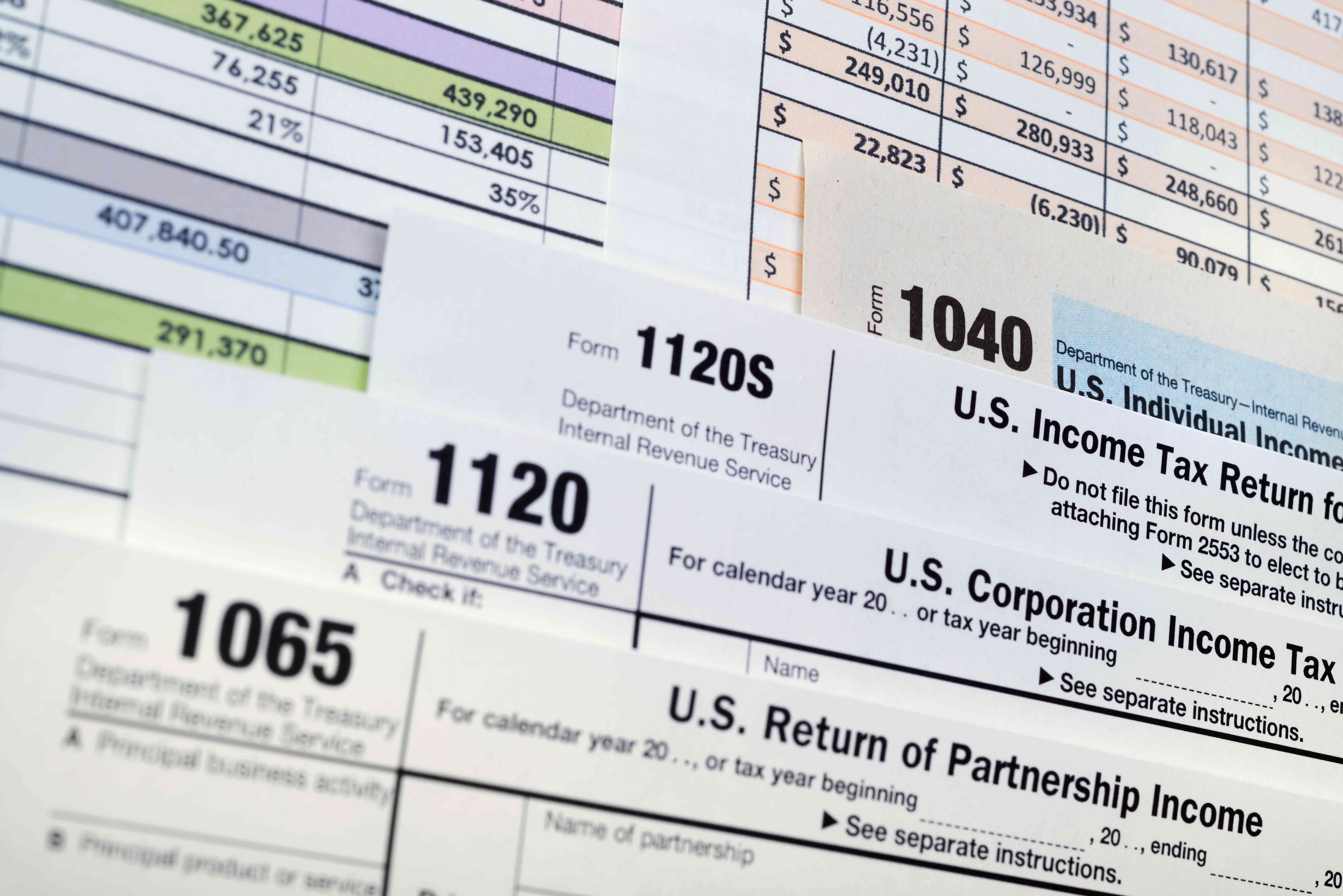Discover practical tax tips to reduce tax season stress and stay organized.
If just thinking about your taxes gives you a headache, you’re not alone. For many Americans, tax season is one of the most stressful times of the year.
The top three most stressful aspects of tax season are gathering the necessary information, waiting for employer documents, and worrying about owing the IRS, according to a recent SurePayroll survey.1
And it’s not just individuals who feel the pressure. Many seasoned business owners also find tax season overwhelming.
There’s no one cure for tax season stress, but there are strategies that can help make it easier.
Here are seven you can start using now:
- Get a head start on organizing.
- Know your key tax deadlines.
- Automate payroll and tax filing.
- Work with a tax professional.
- Maximize deductions and credits.
- Practice self-care.
- Plan for next year.
In this article, we'll take a closer look at each of these tax season tips and share advice for implementing them successfully.
1. Get Organized Early
Getting an early start on your tax preparations can pay big returns for businesses and individuals, helping to reduce the chance of errors or last-minute scrambles.
One of the first and most important steps is gathering your documents and forms. You can’t file your return without them.
For individual tax returns, these might include W-2s from employers, 1099s from freelance or contract work, and bank statements.
For your business's taxes, you’ll need the prior year’s returns and tax notices, year-end financial statements, payroll reports, income records, invoices, and receipts. Having everything in one place can make it easier to spot what’s missing and help save time when filing.
Creating a checklist to track the documents and steps for completing your tax return and closing out year-end payroll tasks can be useful. These steps might include reconciling data after your last payroll of the year, generating year-end reports, and distributing or filing forms such as W-2s, W-3s, 1099s, and 941/940s by their deadlines.
Technology can also help lighten the tax season load. Accounting software or payroll services can help streamline data collection and reporting. Payroll solutions like SurePayroll® By Paychex can automatically generate year-end tax forms and securely track payroll records, which can help save hours of manual work.
Finally, don’t forget about security. One option includes storing your tax documents in a secure cloud-based system to protect sensitive information from loss or theft. This approach can also make files easy to access when you or your accountant needs them.
2. Know Key Tax Deadlines
Another way to make tax season less overwhelming is by being aware and working to stay ahead of key deadlines. Missing a filing or payment date can result in penalties and ramp up the stress.
For your individual return, the most important date to remember is April 15 (or the next business day if it falls on a weekend or holiday), which is the deadline for filing federal income tax returns and paying any taxes owed. If you need more time, you can request an extension, but keep in mind that extensions give you more time to file, not more time to pay.

For businesses, tax filing deadlines vary depending on your structure:
- Partnership and S corporation returns (Forms 1065 and 1120-S): March 15
- C corporation returns (Form 1120): April 15, if your business’s tax year ends on December 31
- Quarterly estimated taxes: Typically, due April 15, June 15, September 15, and January 15 of the following year
- Payroll tax filings (Forms 941 and 940): Quarterly for Form 941, and annually (by January 31) for Form 940
In addition, most states have their own deadlines for income tax or payroll tax reporting, which may not always align with federal dates. Check with your state’s revenue or taxation department to confirm local deadlines.
Setting proactive reminders through your calendar, task manager, or payroll system can help so deadlines don't sneak up on you.
3. Automate Payroll & Tax Filing
Managing payroll and taxes manually can be a time-consuming and error-prone process. Automating it with payroll software can help save you time.
A reliable payroll service can help you by automatically generating and submitting key forms and filings, such as W-2s, 1099s, and quarterly tax reports.
This can help reduce the risk of mistakes that could lead to IRS penalties or fines. Automation can also help you meet key deadlines, which can provide peace of mind during one of the busiest times of the year.
In addition, payroll software platforms can help to maintain accurate, centralized records of wages, deductions, and tax payments. Having this information readily available can make year-end financial reporting and tax preparation easier. As our year-end payroll checklist points out, these tools can also help verify employee data, reconcile payroll records, and provide the clear financial picture you need to plan confidently for the year ahead.
4. Work With a Tax Professional
Tax season is complex, and even small mistakes on returns can be costly. That’s why many individuals and business owners turn to professionals for help.
Nearly half (47%) of the respondents in a recent SurePayroll survey reported filing their own taxes, while the remaining worked with a professional.1
Of those who chose the do-it-yourself route, many said they believed it saved them money (61%) or felt their tax situation was simple enough to handle on their own (42%). About one-third said they were confident they could maximize their own refund.
The top reasons for hiring a professional included maximizing their refund (53%), completing their return faster (42%), and receiving financial advice (36%). Nearly one-third (29%) said they sought professional help simply because they weren’t sure how to complete the forms.
For small business owners in particular, professional guidance can make a difference.
Half of the surveyed CPAs and bookkeepers recommended that business owners seek professional assistance with their taxes, and more than three-quarters (79%) referred clients to an online payroll service to help centralize documents and save time.
If you’re considering turning to a professional for help, keep in mind that the busy season for accountants runs from January through April. If you don’t have a tax professional already, starting your search early can help you avoid the rush and get more personalized attention.
Payroll software can also help make your accountant’s job easier. Payroll services like SurePayroll can automatically generate payroll records and year-end forms, which means you’ll have everything organized and ready to share with your tax professional.
5. Maximize Deductions & Credits
One of the top tax tips financial professionals share is to make sure you’re not leaving money on the table. Tax deductions and credits can help reduce your tax bill, but only if you know what you qualify for and keep proper records.
It helps to understand the difference between deductions and credits.
A deduction lowers your taxable income, while a credit directly reduces the amount of tax you owe. Both are valuable tools, but they work differently on your return.
Common tax deductions for small businesses include:
- Home office expenses: You can deduct a portion of your mortgage interest, rent, and utilities if you use a space in your home exclusively for business.
- Office supplies and equipment: These can range from laptops and smartphones to everyday items like printer paper and pens.
- Employee benefits and insurance premiums: This includes medical insurance, workers’ compensation, and contributions to retirement plans.
- Business travel and vehicle costs: You can often deduct expenses related to client meetings, conferences, and driving for work purposes.
- Professional services: These are fees you pay accountants, attorneys, or consultants.
Other deductions may include advertising and marketing costs, rent for business property, loan interest, utilities, and even certain charitable contributions.
For more, read our guide to small business tax deductions.
Tax credits can also make a big impact, since they reduce your actual tax liability rather than just your taxable income. For example, certain small businesses may qualify for credits related to healthcare coverage or energy-efficient investments.
Remember that every business is unique. Talk with a tax accountant or other financial professional to confirm which deductions and credits apply to your situation and consider using tools like payroll software or a payroll service to centralize your records and make year-end reporting easier.
6. Reduce Tax Season Stress with Self-Care
Tax season can feel like a marathon with its long hours, high stakes, and constant deadlines. While staying organized is key, it’s also important to take care of yourself during this busy time. Stress not only affects your health, but it can also make you more prone to mistakes.
Here are some tips to keep in mind.
- Block time on your calendar. When you set aside time specifically for gathering documents, reviewing records, or meeting with your accountant, you're more likely to feel in control of your workload.
- Take breaks to recharge. It may feel counterintuitive to step away when you’re pressed for time, but short breaks improve focus and help you return with fresh eyes. A quick walk, a stretch, or a few minutes of deep breathing can lower stress and sharpen your concentration.
- Ask for help when needed. Steps like turning to a CPA, leaning on a payroll service for accurate records, or delegating certain administrative tasks are smart strategies. Getting support can ease pressure and free you up for higher-priority decisions.
- Practice small stress relievers. Simple routines like making sure you’re hydrated, eating balanced meals, and getting enough rest can make a big difference in how you handle the tax season crunch.
7. Plan Ahead for Next Year
One effective way to make tax season easier is to start preparing for the next one as soon as this year’s returns are filed.
- Keep financial records updated year-round. Set aside time each month to organize receipts, reconcile accounts, and review payroll reports. Taking small, consistent steps can help reduce the burden later and provide a clearer picture of your business’s finances.
- Look back to move forward. Take a few minutes to review what went smoothly this year and where you struggled. Did you miss a deadline? Spend hours hunting for receipts? Note what you’d like to do differently so you can make improvements now instead of repeating the same challenges.
- Set aside estimated taxes quarterly. Small business owners and independent contractors who expect to owe at least $1,000 in taxes annually are generally required to make estimated quarterly payments. Earmarking funds for those payments can help prevent a large, unexpected bill at the end of the year. Even modest contributions each quarter can make a big difference.
- Leverage payroll services for efficiency. A payroll service like SurePayroll can help you keep your records accurate, generate reports automatically, and calculate taxes along the way. Having this information readily available makes tax prep faster and less stressful when the next filing season rolls around.
Final Thoughts
Tax season is rarely anyone’s favorite time of year, but it doesn’t have to be overwhelming. Making time to prepare and find the right support can help minimize your stress.
When you stay organized, monitor deadlines, maximize deductions, and take care of yourself, tax season can become more manageable. Preparing for next year can also help maintain momentum.
And remember, you don’t have to tackle tax season alone. Payroll solutions built for small businesses, like SurePayroll, can make it easier to stay on top of payroll and year-end reporting so you can reclaim valuable time for your business.
1 2023 SurePayroll survey of 2,000 adults, including 500 CPAs and bookkeepers, conducted by OnePoll (now Talker).
This content is for educational purposes only, is not intended to provide specific legal advice, and should not be used as a substitute for the legal advice of a qualified attorney or other professional. The information may not reflect the most current legal developments, may be changed without notice and is not guaranteed to be complete, correct, or up to date







-min%20(1).avif)
-min.avif)
-min.webp)




